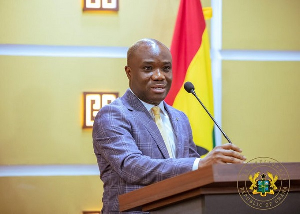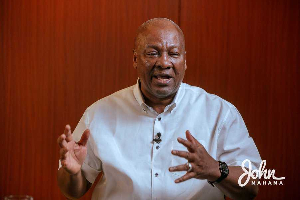Mr Emmanuel Agyekum, Deputy Minister of Local Government and Rural Development has called for attitudinal change to help address the sanitation problems in Ghana.
He said until Ghanaians changed their ways and collectively contribute towards the fight against poor sanitation and water issues "the country will continue to lag behind as far as this key issue and the development of the nation is concerned."
Mr Agyekum said this at a two day workshop to re-organise Metropolitan and Municipal Assemblies (MMAs) for their achievements of a 100- day action plan to improve sanitation in their respective assemblies under the Rapid Results Initiative (RRI).
The RRI project, funded by the World Bank, challenges the assemblies to implement innovative ways to address the sanitation and water problems in their areas.
Mr Agyekum said in view of this, the MMAs such as Ashiaman Municipal Assembly had registered close to 200 households and constructing 17 household toilets, while the Tema Municipal Assembly has completed eight drains and responding to two cases of obstruction within three days.
He said the La Nkwantanang Municipal Assembly had reduced the number of cholera cases in the Municipality to zero, while La-Dadekotopon Municipal Assembly had developed a food hygiene checklist to be complied by about 320 food vendors for eight weeks within the locality.
The Ga East Municipal Assembly, he said, was also prosecuting 14 landlords to complete toilets facilities in their homes before November 30, 2015, while the Ga West Municipal Assembly was working with the Chief Justice to assign Fridays to the adjudication of sanitation related cases.
The Minister congratulated the Ga Central Municipal Assembly for convincing 150 landlords at the Olebu community to commit to owning household toilets, Ga South Municipal Assembly for cleaning beaches in six communities such as Oshiyie, Ayigbe Town, Langma, Tsokome, Kokrobite and Bortianor, and the Ledzokuku-Krowor for the reduction in open defecation and dumping of faecal matter at the Nungua and Teshie beaches.
He tasked the MMAs to implement innovative programmes to solve sanitation problems.
“I wish to see the innovative ways being replicated across the MMAs so that we can keep Accra clean and change the behavior of our citizens regarding sanitation”.
Mr George Asiedu, GAMA Sanitation and Water Project Coordinator, Ministry of Local Government and Rural Development, said the RRA was an increasingly popular method for improving performance within large organisations and multi-sectoral partnerships.
He said the approach used specially structured, 100-day goals to accelerate change and capacity development as it had empowered teams from the various MMAs to create, test, and refine the policy and process innovations needed to achieve their 100-day goals.
Regional News of Thursday, 29 October 2015
Source: GNA

















